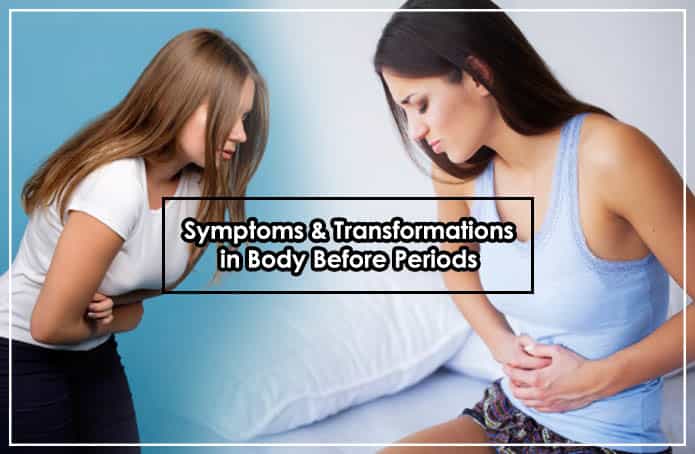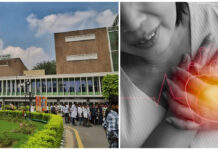Most of the Women, say 90%, claim that they get some premenstrual symptoms, such as bloating, headaches, and moodiness. But the effect varies from person to person. Some women face the pre symptoms very severe where they tend to miss work or school, but a few women are not bothered by milder symptoms. On average, women in their 30s are most likely to have PMS. A doctor can help one to find ways to relieve from the severe symptoms.
➭ Women Health Tips
First, let us understand what is PMS (Pre Menstrual Syndrome), it is a combination of emotional and physical symptoms that many women get after ovulation and before the start of their menstrual period. Studies say this happens with one because of oestrogen and progesterone hormone levels starts fluctuating if one is not pregnant. This PMS symptoms slowly get rid of, after a woman’s period starts as hormone levels begin rising again.
But some women are very lucky as they get their periods without any signs of PMS or only very mild symptoms. For others, it may be very severe that it makes it hard to do everyday activities like going to work or school. Severe PMS symptoms may be a sign of premenstrual dysphoric disorder (PMDD). PMS goes away when one no longer gets a period, such as after menopause. After pregnancy, PMS might come back but could have different PMS symptoms.
❒ Health & Fitness Tips 1 Swollen Stomach during PMS
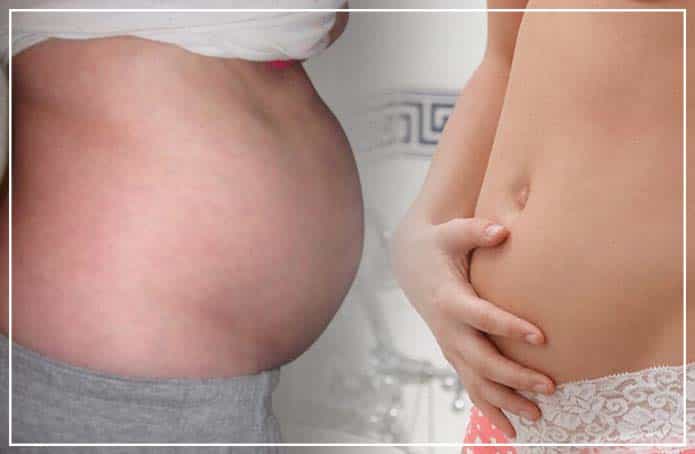
The stomach becomes like a puffa fish. It appears as if it is full of air, it’s actually the water retention, usually occurs in the abdomen and breasts. This happens due to the drop of hormone progesterone just before your period causes excess fluid to build up in the body and stretches the skin and causes aches and pains. This pain can be resolved by increasing water intake as it helps the body to flush out water needlessly hanging around. Avoid alcohol as it only serves to dehydrate one which has the opposite effect of beating water retention.
❒ Health & Fitness Tips 2 Stomach Upset during PMS
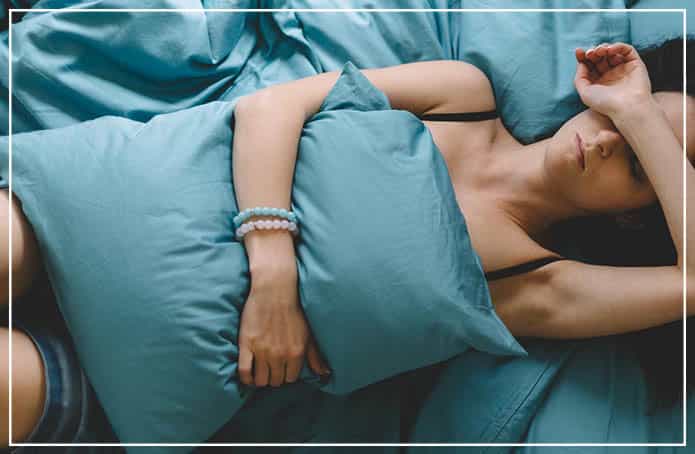
The onset of period plays differently with our bowel movements. This feeling of toilet trouble can be due to a number of things; first, there are prostaglandins, hormone-like compounds responsible for triggering period cramps, which have been found in high concentrations among women who struggle with diarrhoea around the period phase of the month. The changes in oestrogen and progesterone hormones interfere with bacteria in the stomach, disturbing the digestive process.
❒ Health & Fitness Tips 3 Craving for Carbs during PMS
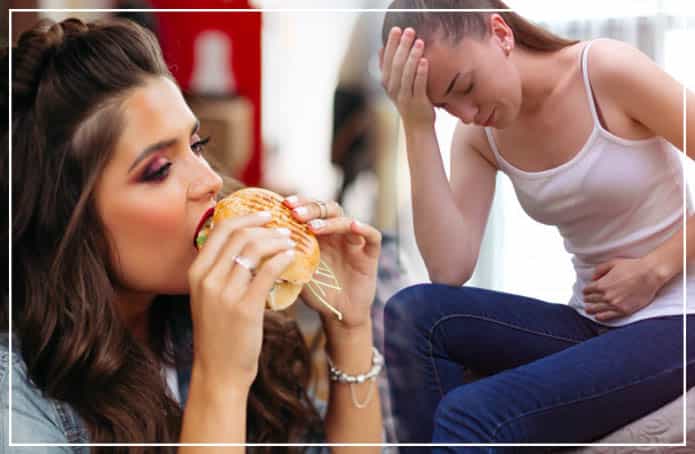
There is an unquenchable desire for filling with carbs and sugary treats, there is a logic behind the expected calorie binge the week before the period. A natural spike in the hormone cortisol stimulates the appetite, making the body cry out for Pringles when it might otherwise be happy with a pear. Then it is also well known that PMS causes a drop in serotonin, which increases the carb cravings because the body naturally converts carbohydrate to serotonin.
❒ Health & Fitness Tips 4 Brain Disturbance During PMS
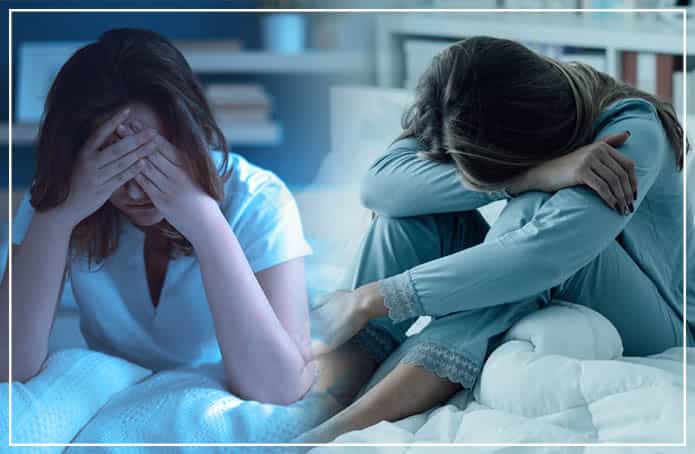
As the oestrogen level drops down the decrease in mental clarity triggers. Best is to avoid any exams or assessments during that time. But when oestrogen levels increase during ovulation, women seem to enjoy a boost in verbal skills.
❒ Health & Fitness Tips 5 Migraines during PMS
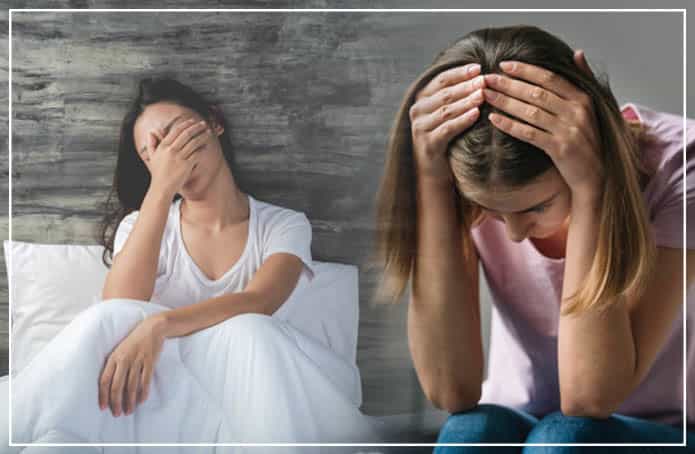
More than half of women get affected by migraines, suffer around the time their period hits, and head pain at this time of the month is said to be much more intense. It’s thought to be caused by the natural fluctuation in the oestrogen levels, which occurs immediately before the beginning of the menstrual flow. This thinking is supported by the fact that some oral contraceptive pills have been found to trigger migraines, even if they actually increase oestrogen – it seems any fluctuation in this hormone, whether that’s making levels higher or lower, can cause pain.
❒ Health & Fitness Tips 6 Mood Swings during PMS
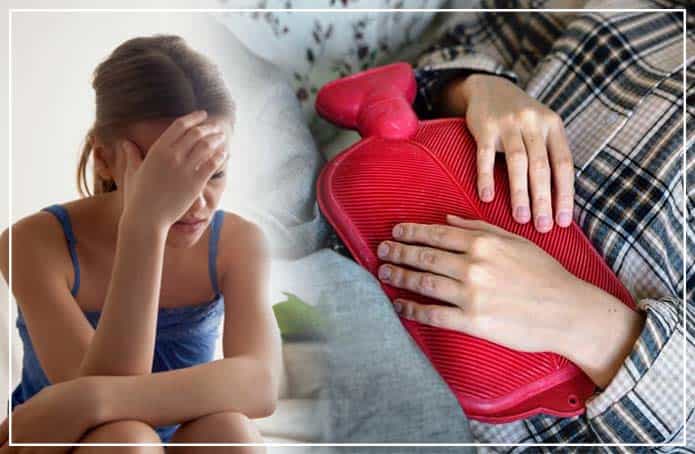
Mood swings are faced by almost all the women in PMS symptoms, but this stereotype exists for a reason. Changes in hormones, as well as slight alterations in the chemical processes of the brain, are believed to trigger emotional and psychological reactions in individuals, with many of them reporting a tendency to cry or feel sadness.
❒ Health & Fitness Tips 7 Pimples or Acne during PMS
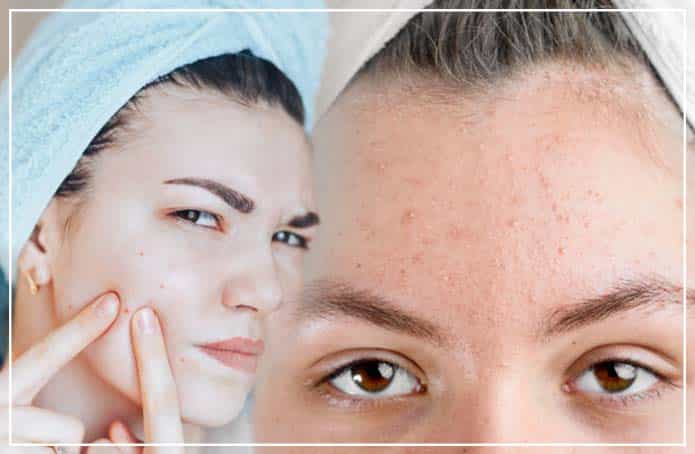
It’s a hormone game again. In the 7-14 days before the period, the body’s level of the sex hormone estradiol falls but testosterone remains high, this gives rise to an increase in the production of the skin’s sebaceous glands. Skin is producing more natural oils on a daily basis, particularly in those people who tend to have oily skin and so the likelihood of congestion and spots becomes higher at that point in the menstrual cycle.
❒ Health & Fitness Tips 8 Tiredness during PMS

This gets stimulated due to low energy. It is the side effect of some of the other symptoms like headaches, bloating, migraines, the sleep cycle is disrupted and one doesn’t get the proper rest. In addition, rising and falling levels of oestrogen also increases body temperature, which has a direct impact on the natural sleep cycle, and one happens to increase the calorie levels. Eating carbohydrate-rich foods is likely to play a role in increasing feelings of lethargy and sluggishness.
“Try To Consume More of Fruits and Vegetables”
❖ Read More:
➥ How Meditation is Good for your Health and Stress-Free Life?
➥ Is Social Media a Boon For Improving Psychological Distress
➥ Panic Attacks Symptoms and Treatment
➥ Healthy Ways to Gain Weight If One Is Underweight
➥ Depression – A Major Concern | Symptoms and Treatment

